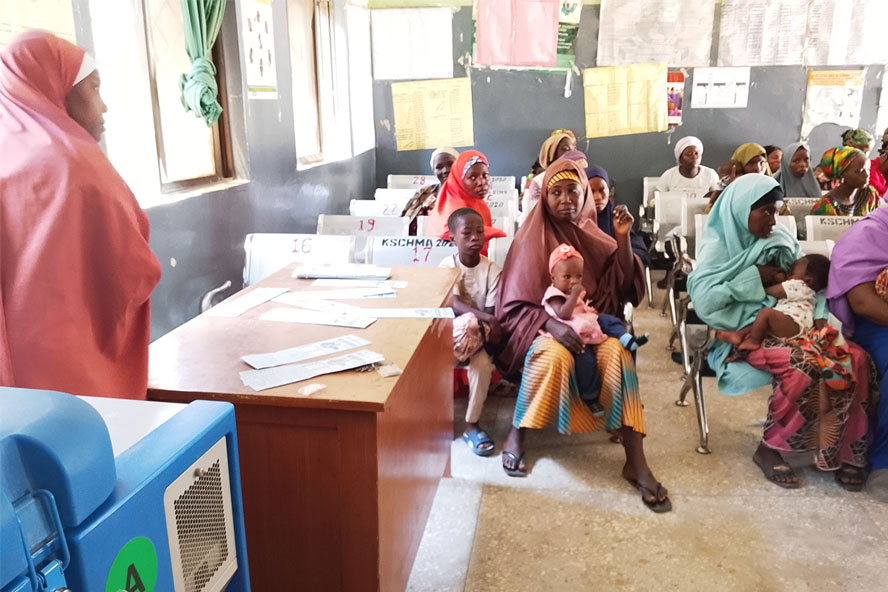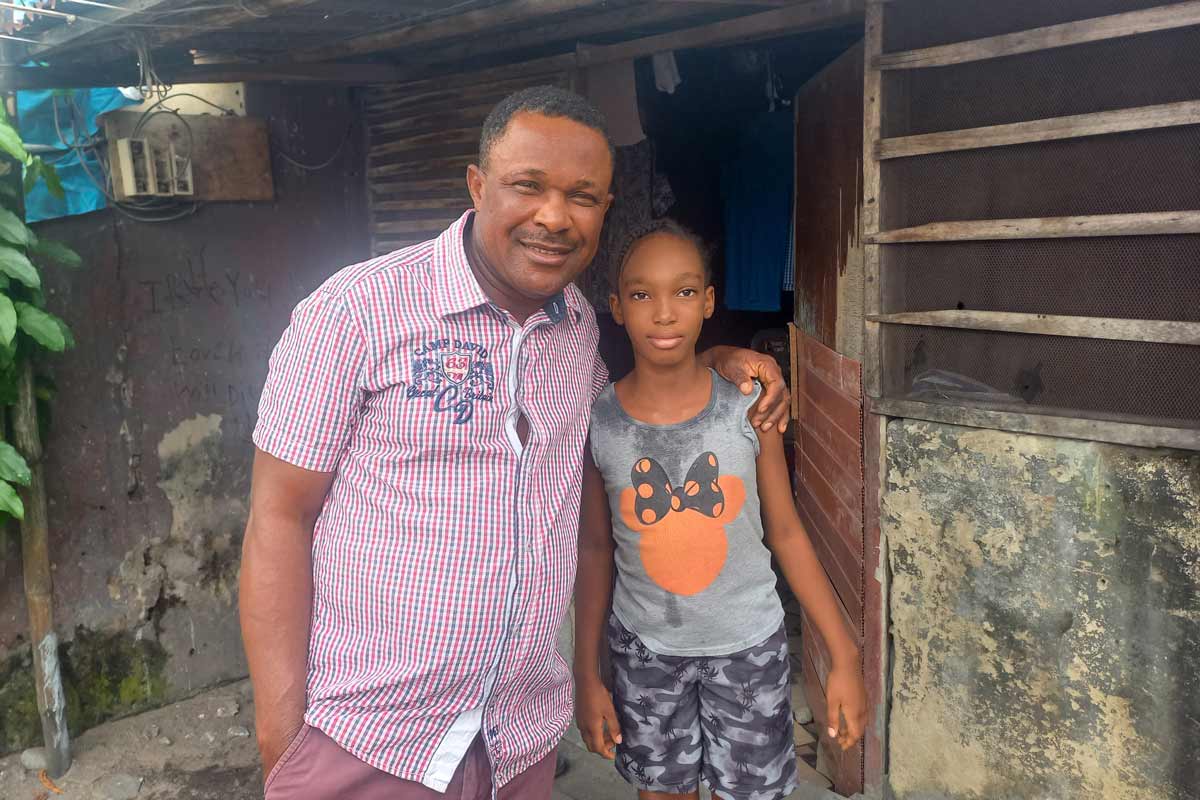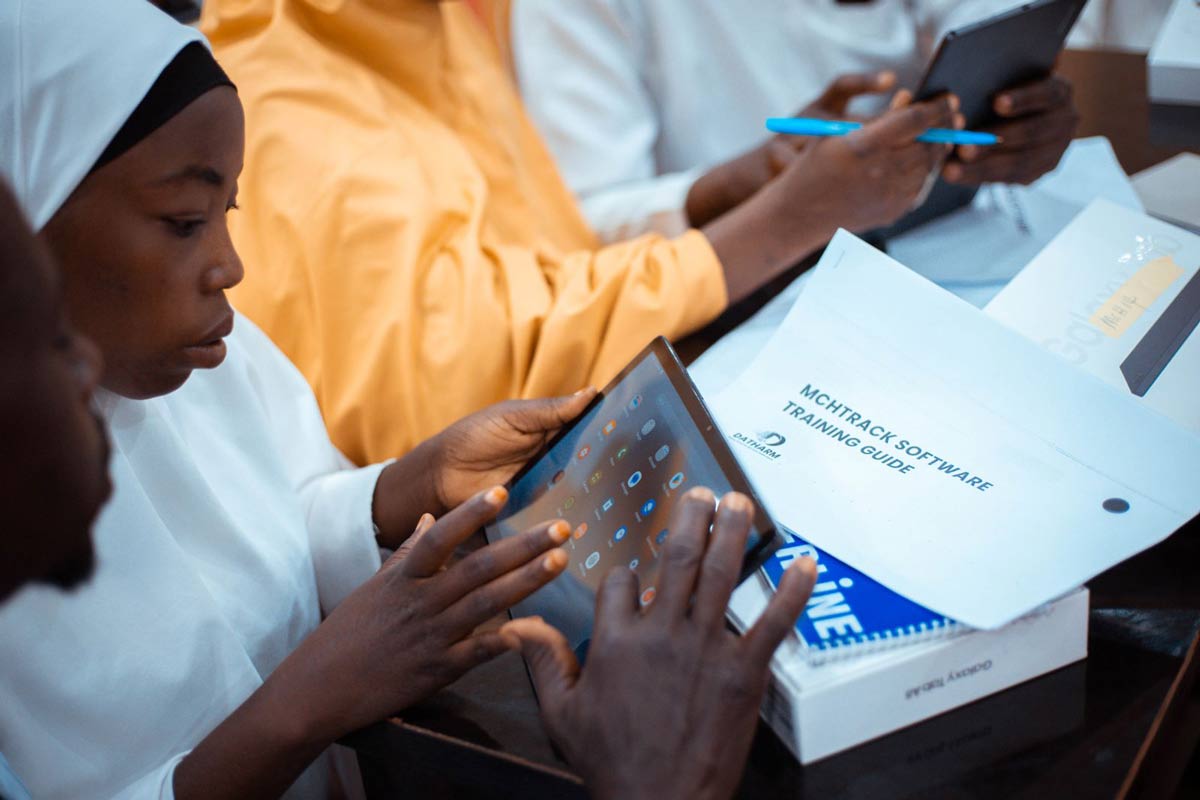How traditional rulers are boosting immunisation uptake in northern Nigeria
Traditional monarchs in northern Nigerian states are partnering up with national public health organisations to get more children protected. It’s working.
- 26 May 2025
- 8 min read
- by Afeez Bolaji
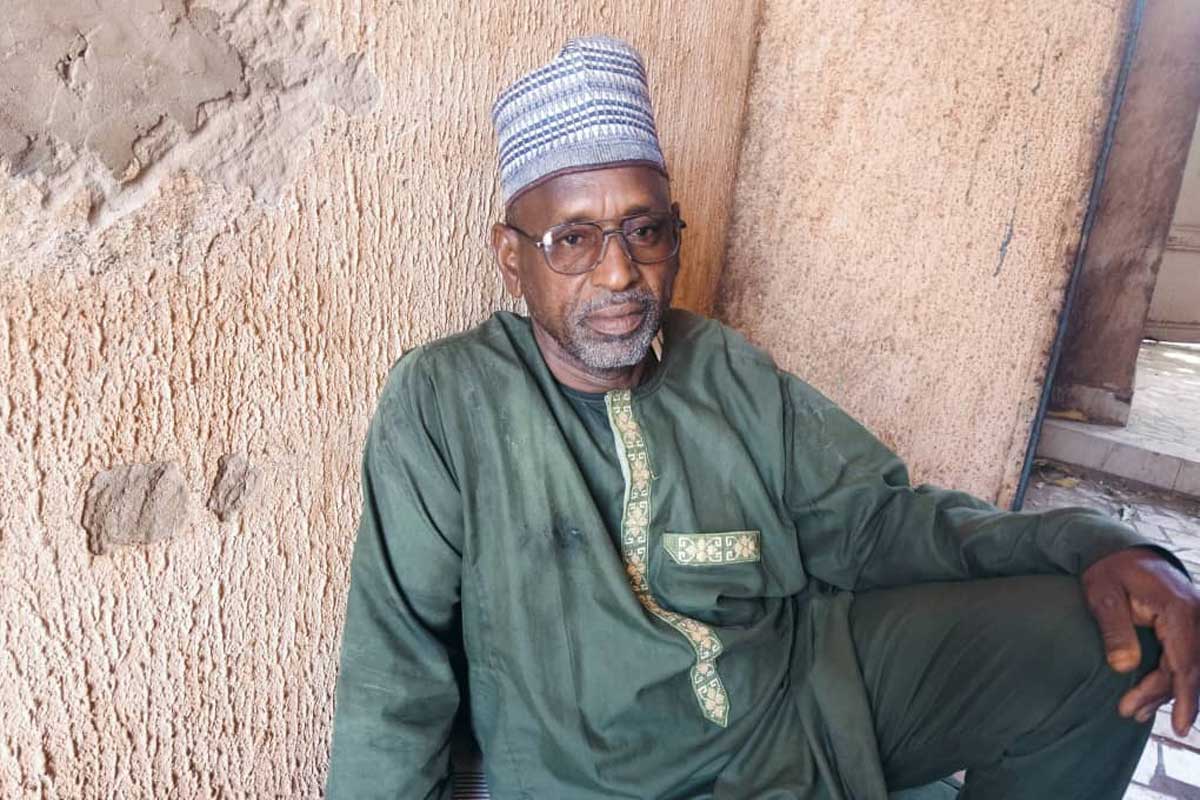
Robed in flowing traditional attire with a white turban to match, Alhaji Sani Umar, the district head of Gagi, a large community in Sokoto State, emerged from his palace one April midday. Surrounded by religious leaders and youths, he headed out into the town. With public address systems set up to amplify their voices, the team toured major locations, including marketplaces, appealing to the people to present their children for a mass polio vaccination campaign that was days away.
“Traditional and religious leaders are highly respected. We shape people’s opinions through effective mobilisation,” Umar told VaccinesWork. “We are the gatekeepers, bridging gaps between the health service providers, community members and the government.
“Before every mass vaccination, we carry out a series of sensitisation [sessions], which includes drama and town hall meetings to convince people to accept vaccines. This has changed […] perceptions of parents on immunisation.
“Recently a community was identified as [vaccine-] hesitant. I mobilised community leaders, and the issue was resolved. More than 100 children were immunised on day one of the outreach,” Umar said.
April’s campaign was not a one-off. It is a routine task Umar and several traditional leaders in Sokoto and other northern states have diligently taken up in recent years – in addition to their core communal responsibilities – to boost immunisation coverage, which is much lower in northern Nigeria than in the southern part, despite the former having a higher population. Sokoto’s vaccination rates are among the lowest in the country.
The immunisation gap in the northern region has been attributed to cultural factors, low literacy levels and insecurity.
But since 2009, when the Northern Traditional Leaders Council (NTLC) PHC Delivery platform was inaugurated by the current Coordinating Minister of Health and Social Welfare, Prof Muhammad Ali Pate, influential figures like Umar are increasingly speaking up for change.
Connecting the centre to the grassroots
Drawn from the 19 northern states and the Federal Capital Territory, the NTLC was originally established to address the challenges of the high rate of refusal of the oral polio vaccine and strengthen primary healthcare systems. It meets regularly with the Primary Healthcare Development Agency (NPHCDA) to deliver information on health services, immunisation chief among them. The committee members, in turn, pass the information to district heads, who lead mobilisation at grassroots level.
“We have a district head committee, village head committee and ward head committee. I gather all the village heads and imams to discuss immunisation, and they thereafter disseminate the message in their different communities,” Umar explained. “The village heads also engage the ward heads under them. We charge the imams to preach vaccine acceptance in mosques, especially during Friday prayers attended by large congregations. We also do advocacy at social gatherings, like the naming ceremony of newborns.
“I visit health facilities under my district to know the challenges they face in administering immunisation, and report gaps to the Primary Health Care Development Agency for urgent actions to be taken. I lead by example. When people see my children receive immunisation, it gives them confidence,” he said.
And the strategies are working. Umar enthused about a significant increase in the number of children immunised across the health facilities in his district. The effect of that on childhood diseases, in turn, is evident.
“We hardly record cases of measles, whooping cough, chicken pox and several other diseases across our communities again. We have almost zero epidemics, and that is because many children are being immunised,” he added.
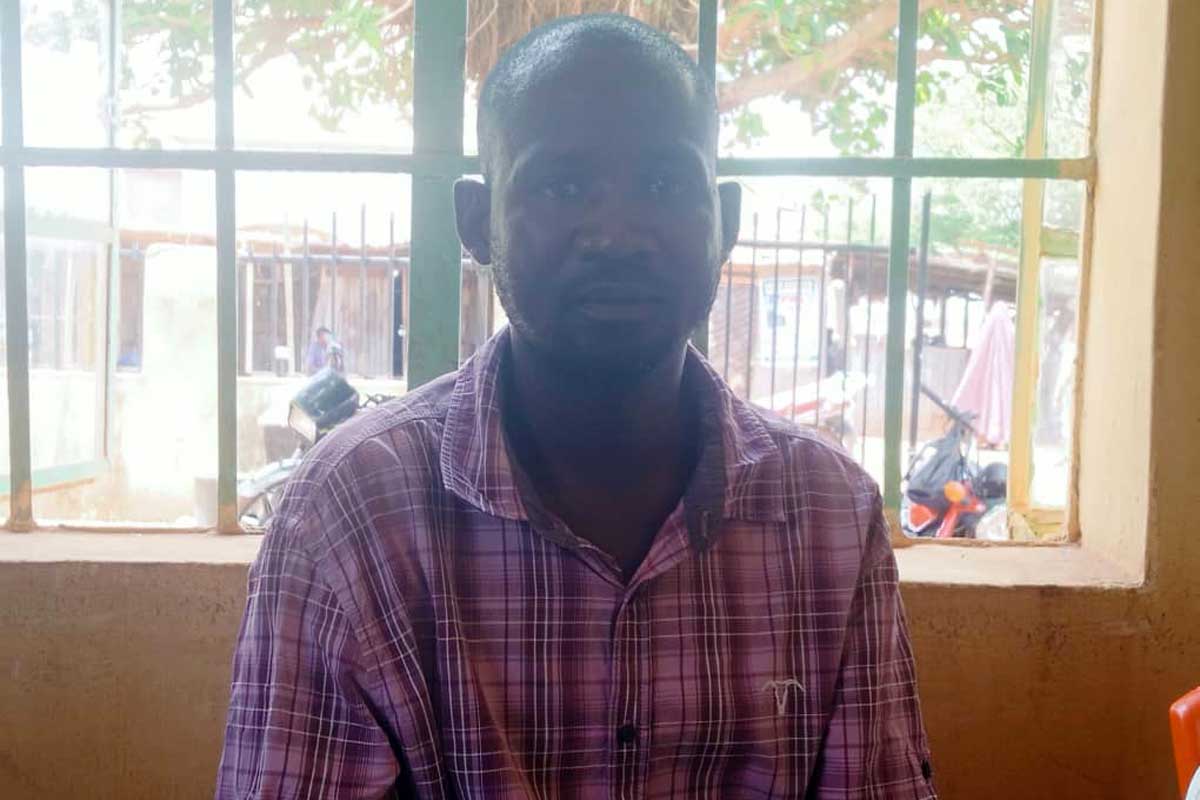
Going door-to-door
Several other traditional rulers VaccinesWork spoke to in Sokoto employ similar strategies as Umar to bolster vaccination. Muhammadu Sambo, the district head of Tamaje, goes door-to-door in his kingly attire to get families to embrace immunisation.
“We go from one house to another to inform our subjects on the importance of immunisation, and we have recorded great success. We convince those who refuse to allow their children to be immunised.
“Vaccine acceptance is becoming popular now, unlike before. I have agents who go around the community to convince families. If there is rejection during outreaches, we follow the immunisation team. My people respect me, and as soon as they see me with the team, they allow their children to be immunised,” he said.
Traditional leaders “contribute immensely,” say health leaders
NPHCDA Executive Director Dr Muyi Aina, said the agency’s partnership with traditional rulers and religious leaders aligns with its “strategic blueprint” to build trust and enhance demand for primary healthcare services.
He explained that traditional leaders across the country have proven instrumental to the steady improvement in routine immunisation coverage.
“For example, during the just-concluded April 2025 national polio campaign, 405,557 zero-dose children were reached and vaccinated across 19 states in northern Nigeria. Traditional leaders continue to play a critical role in promoting the uptake of new vaccines. Within the two years of President Tinubu’s administration, three new highly desirable vaccines have been successfully introduced: for cervical cancer, malaria and mpox. Traditional leaders in particular create awareness and sensitise their communities on the benefits and safety of these new vaccines.
“They contributed immensely to the globally acknowledged very high uptake of the HPV vaccine that was introduced in October 2023. As of April 2025, over 13 million adolescent girls have been vaccinated with the HPV vaccine across 36 states and FCT, achieving 96% of the target we set for ourselves, which has been adjudged the best in the world,” Aina said.
The NPHCDA director further acknowledged the NTLC’s role in Nigeria’s successful eradication of the wild polio virus, in maintaining the country’s WPV-free status and in contributing to ongoing efforts to interrupt the transmission of all forms of the virus from the country.
“The traditional leaders collaborate with their counterparts in neighbouring countries such as Niger, Chad, and Cameroon during synchronised polio outbreak response campaigns to ensure eligible children in international border communities are vaccinated. During the recently concluded April national polio campaign, [which was] synchronised with Lake Chad Basin countries, 53.6m of the targeted 65.9m children were vaccinated.
“In partnership with traditional leaders, we vaccinated 25.9 million children against measles across 26 states and 22.5 million against yellow fever through synchronised and integrated campaigns across 26 states.
"Also, we successfully controlled the cholera outbreak in 8 states by vaccinating 3.3 million persons and vaccinated 4,278 persons with the Mpox vaccine in 7 states with the highest burden. We successfully responded to the meningitis outbreak in Sokoto and Kebbi states and vaccinated 885,871 across five LGAs in the two states,” he added.
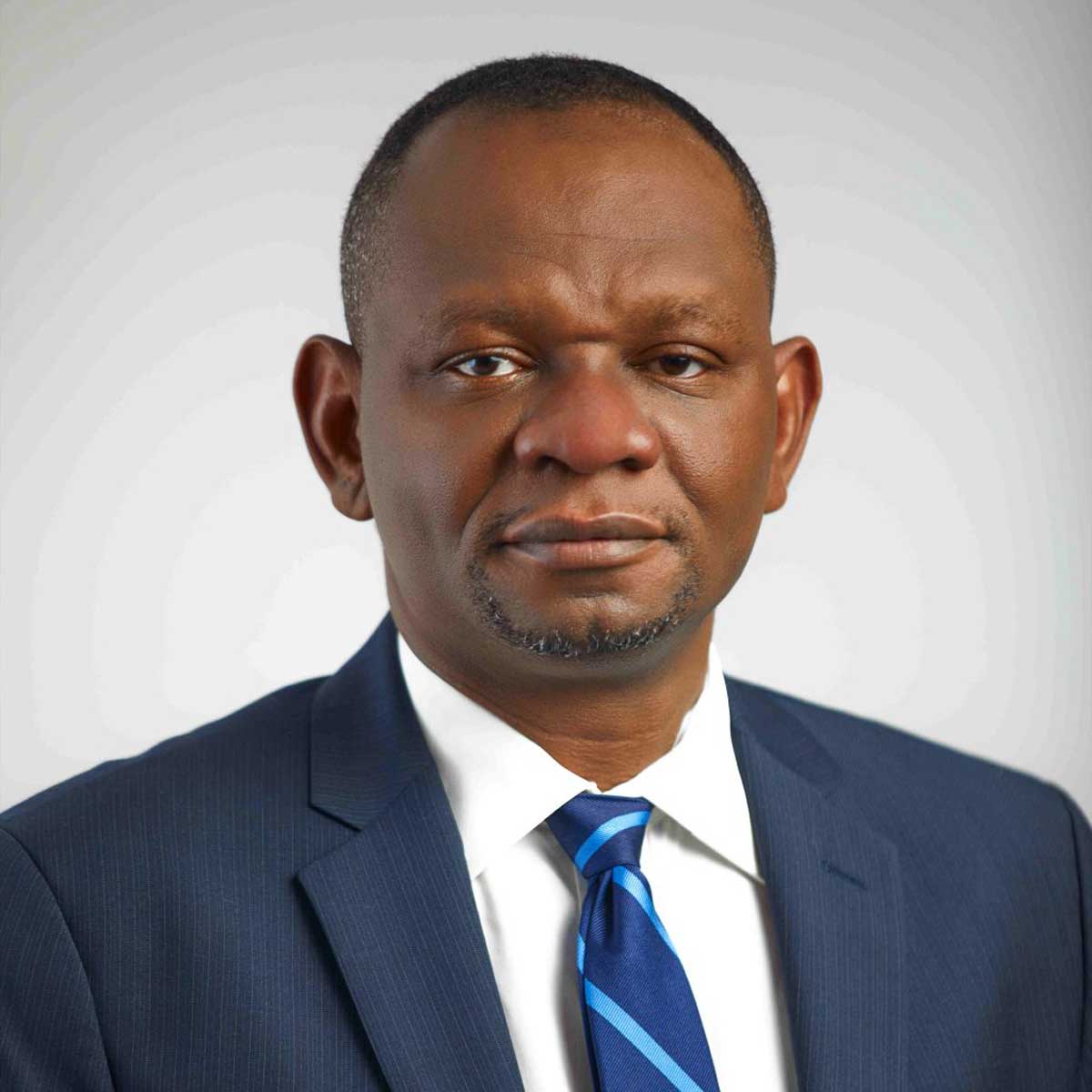
Driving demand and reaching displaced children
Even so, parental refusal to vaccinate remains one of the challenges facing the polio eradication programme in Nigeria, Aina revealed. But the NTLC, which comprises traditional rulers, community and religious leaders, is taking on the challenge. Aina says it can boast having successfully resolved 65% of reported cases of vaccine refusal across 17 northern states.
“Similarly, during the November 2024 polio outbreak response campaign across 18 northern states and Oyo [in southern Nigeria], 68% of the reported cases of vaccine refusal were resolved by the traditional institution. Specifically, in Adamawa and Kebbi states, 92% and 84%, respectively, of vaccine refusal cases were resolved by traditional leaders,” Aina stated.
Moreover, as insecurity in some parts of the country hinders access to eligible children, traditional leaders have been able to facilitate safe passage for health workers to enable vaccination reach in inaccessible settlements.
“They also assist in tracking and locating displaced populations. With the support of the traditional rulers and other partners, 62% of inaccessible settlements were reached during the just-concluded polio campaign in 19 northern states.
“In 2024, in our effort to reduce chronically missed children during polio campaigns, with the support of traditional leaders, we were able to map almost 540,000 settlements across the country and successfully enumerated 926,007 under-five children, tracked and vaccinated 851,929 (92%) of them across 108 high-risk wards,” he said.
Have you read?
Health workers testify to royal intervention
Bello Ladan, an immunisation officer at Tamaje primary health centre, told VaccinesWork that the traditional rulers’ intervention has helped to massively scale up immunisation at the facility.
“On average, we immunise 50 children every week compared to less than 30 in the past,” Ladan remarked. "”he traditional rulers always help us to enlighten parents to bring their children to the hospital for immunisation. They also follow us to communities during outreaches because more parents bring out their children when they see them with us.”
Traditional and religious leaders are active participants in routine immunisation, said Zuliah Salihu, a midwife at Malatundun health centre in Tamage.
“They talk to families about the importance of immunisation, and that has changed their attitude. Many mothers now come to immunise their children. We recently went on an outreach with Magajin Tamaje [Tamaje district head]. About 150 people were immunised that day. The number was more than we expected,” she explained.
A farmer from Gagi community, Jamiu Afolabi, said a lot of men used to be reluctant to give consent to the immunisation of their children. “Most women would not immunise their children without their husband’' approval. Through enlightenment by traditional rulers, men now allow their wives to take children for vaccination. All my three children have been fully immunised,” he added.
